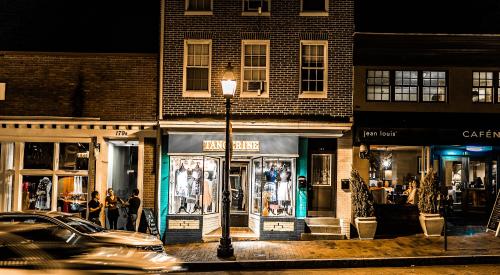Nail-Laminated Timber Design and Construction Guide released
The Bi-national Softwood Lumber Council recently released the Nail-Laminated Timber (NLT) U.S. Design and Construction Guide. The first-of-its-kind manual for the U.S. design and construction community was conceived and prepared by skilled practitioners dedicated to advancing high-quality timber construction across industries, typologies, and geographies. Available for free download at reThinkWood.com, the guide provides direction to ensure safe, predictable, and economical use of NLT.
The document also offers practical strategies and guidance, including lessons learned from real-life projects. It is consistent with current codes and standards, including the 2015 International Building Code.
The Guide focuses on design and construction considerations for horizontal NLT applications pertaining to U.S. construction practice and standards. Unlike other mass timber products, NLT does not require a unique manufacturing facility and can be fabricated with local dimension lumber for use in applications across sectors and building types. "Nail-laminated timber is a cost-effective solution for those looking to leverage the economic and environmental benefits of mass timber construction,” said Cees de Jager, General Manager of the Bi-national Softwood Lumber Council.
“While NLT has been incorporated into U.S. building code for decades, available resources are dated and have been focused on prescriptive, rather than engineered applications," said Rebecca Holt, of Perkins + Will.
Canada Green Building Council and Green Business Certification Inc. announce partnership
Canada Green Building Council (CaGBC) and Green Business Certification Inc. (GBCI) recently signed an agreement in principle to form a Canadian joint venture called Green Business Certification Inc. Canada (GBCI Canada). Beginning in early 2018, GBCI Canada will deliver all of the current and future GBCI offerings including certification and professional credentialing services for LEED v4, WELL, SITES, PEER, Parksmart, Zero Waste and GRESB in Canada. The new organization is being established to more effectively support the Canadian market.
CaGBC will continue to support the Canadian green building industry, its members, and stakeholders through education and training, advocacy and research, business events, and a range of other activities. CaGBC will continue to provide certification reviews and market support for LEED Canada. It will also deliver and support its new Zero Carbon Building Standard.
CaGBC will continue to certify all LEED Canada projects. GBCI Canada will deliver LEED v4 and all GBCI rating systems via LEED Online and Arc, using Canadian staff and knowledge to provide support.
For more information, visit: www.cagbc.org.
New Florida codes requires blower door rating test beginning July 1
The State of Florida’s new code will require a blower door rating test, which measures home air leakage, on all new home construction starting on July 1st. The test is expected to cost $400 to $500. The blower door de-pressurizes a home, exaggerating the home's air leaks, and making leaks easier to measure and locate. A new house must have three to seven air changes per hour in order to comply with code. If structure fails the test, the builder has to locate and fix the leaks.











